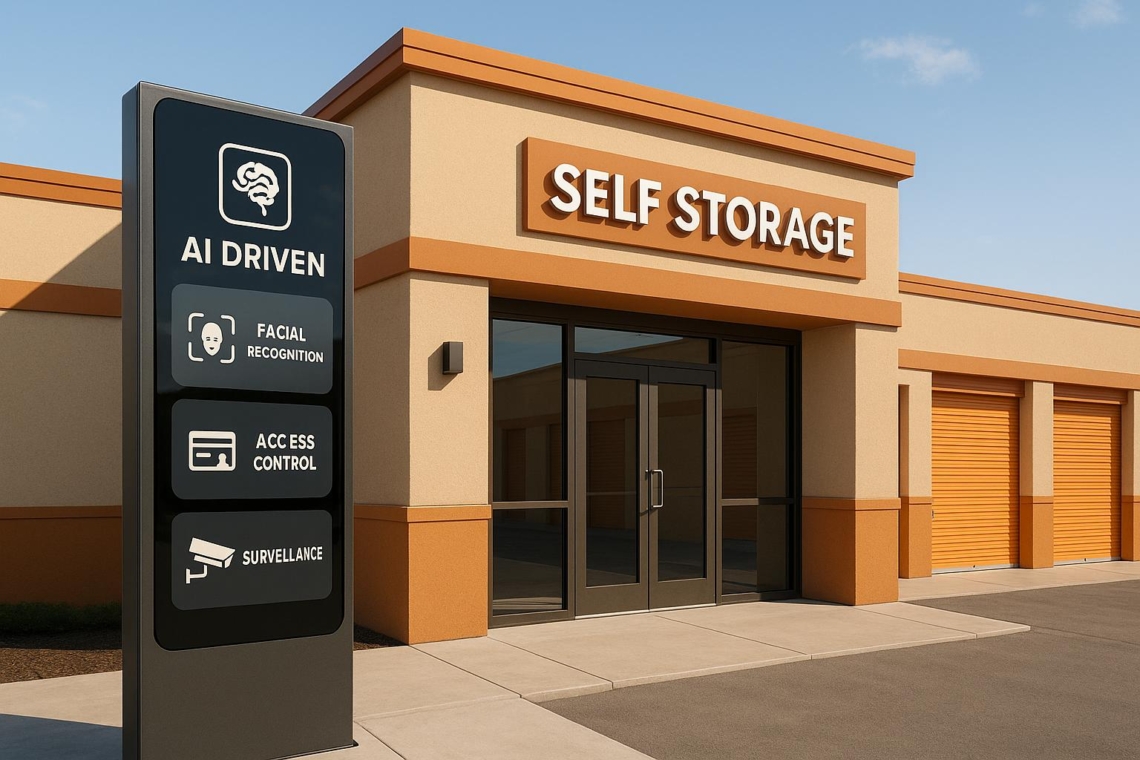Ultimate Guide to Marketing Metrics for Storage Hosts
- October 6, 2025
- Self Storage
Tracking marketing metrics is the key to understanding your storage hosting performance. These numbers reveal how well your efforts attract renters,…
Read More
Self-storage has long been recognized as a straightforward, scalable business model. But in recent years, the landscape has evolved dramatically with the advent of artificial intelligence (AI) and the application of franchise-like operational strategies. These tools are enabling efficiency, scalability, and innovation, helping the industry meet modern demands. In a recent discussion with Steve Reposa of Mini Mall Storage Properties, hosted by Scott Meyers on the Self Storage Podcast, the duo explored transformative ways self-storage operators leverage these tools for success.
This article dives into key insights shared during their conversation, analyzing how businesses can capitalize on AI, streamline operations, and adopt scalable practices to drive growth.
Steve Reposa’s path to self-storage wasn’t linear, but it’s his diverse background that provides him with a dynamic perspective. His career began in hospitality, transitioning from hotel operations and franchise development roles with companies like Choice Hotels and Wyndham to self-storage acquisitions at Mini Mall Storage Properties.
This background in hospitality taught Steve invaluable lessons about systematization, scalability, and customer service – skills he now applies in self-storage. As Steve explained, "Self-storage operates almost like a franchise model. Once systems and standard operating procedures are in place, they can be replicated and tweaked for efficiency across multiple facilities."
This comparison to franchising highlights a core tenet of success in self-storage: scalability through systemization. Operators who adopt franchise-like structures can manage portfolios more efficiently, delivering consistent results while reducing operational strain.
Artificial intelligence (AI) is rapidly transforming industries, and self-storage is no exception. Steve and Scott discussed how AI is being deployed in various facets of self-storage operations – from streamlining customer interactions to improving underwriting processes.
AI tools are filling gaps in labor-intensive processes, particularly through automated customer interactions. Chatbots, for example, now handle routine customer inquiries 24/7, saving time and reducing the need for on-site staff. "It’s not about eliminating people", Steve noted, "but about making those customer-facing employees more effective by handling the basic questions through automation."
AI also plays a major role in training and standardizing practices. Operators are using tools that transcribe videos and create detailed training manuals, ensuring uniformity across facilities. By automating these processes, businesses reduce labor hours and foster consistency in service quality.
In acquisitions, AI enables operators to reverse-engineer their market selection process. Instead of manually examining individual markets, tools now allow businesses to input their criteria – like zoning rules, demographics, and supply-demand dynamics – and identify prospects automatically.
Steve shared how some platforms even analyze local government records to determine approval rates for self-storage developments. "You can walk into city council meetings already knowing the landscape", Scott added, underscoring how AI expedites decision-making for acquisitions.
AI’s application in financial modeling is particularly compelling. For instance, businesses use AI to evaluate portfolios in real time, assessing whether to refinance, sell, or hold based on interest rate changes and market valuations. This agility allows operators to maintain a competitive edge in a fast-changing economic environment.
Borrowing from the hospitality industry, Steve emphasized the importance of creating standardized procedures that can be replicated across facilities. Drawing inspiration from Michael Gerber’s The E-Myth Revisited, he highlighted how self-storage businesses can adopt this mindset to manage large portfolios effectively.
"Once you’ve built your processes, you can replicate them and tweak them over time", Steve explained. This approach doesn’t just ensure consistency; it also supports scalability by laying a foundation for smooth expansion.
AI fits seamlessly into this framework by automating repetitive tasks and compiling "best practices." For instance:
Such initiatives enable businesses to scale efficiently without compromising quality or increasing operational costs disproportionately.
Despite technological advancements, the self-storage industry faces challenges, particularly in acquisitions. Rising interest rates and shifts in market conditions have created friction between buyers and sellers, resulting in a bid-ask spread that slows transactions.
Steve acknowledged the difficulty of navigating this environment but remained optimistic about long-term opportunities. "It’s a tough market, but the right opportunities are out there. Discipline and prudence are key", he explained. Mini Mall Storage Properties continues to actively pursue deals while ensuring sound underwriting practices.
Another critical aspect of operations is security, which has seen significant advancements through smart technology. From automated access systems to AI-driven surveillance, businesses are investing in tools that enhance safety and reduce operational burdens. These innovations promise a future where facilities might even operate fully remotely.
As AI technologies continue to evolve, operators can expect further breakthroughs in automation, cost reduction, and customer experience. The key, as Steve noted, is to adopt these tools thoughtfully, with an eye on long-term efficiency and security.
The self-storage industry stands at the intersection of tradition and innovation, with AI and franchising providing the tools to navigate this exciting era of change. By adopting standardized frameworks and leveraging AI’s capabilities, businesses can scale efficiently, reduce costs, and improve customer experience.
As Steve Reposa eloquently put it, the key lies in blending best practices from other industries with self-storage’s unique demands. Whether you’re a property owner looking to monetize unused space or an operator managing a growing portfolio, these insights provide a roadmap for success.
The future of self-storage is bright – and those who embrace these transformative tools will undoubtedly lead the way.
Source: "Is the Future of Self Storage AI + Franchise Systems?" – Scott Meyers – Self Storage Investing, YouTube, Aug 25, 2025 – https://www.youtube.com/watch?v=yRIjJltBQoA
Use: Embedded for reference. Brief quotes used for commentary/review.
Join The Discussion